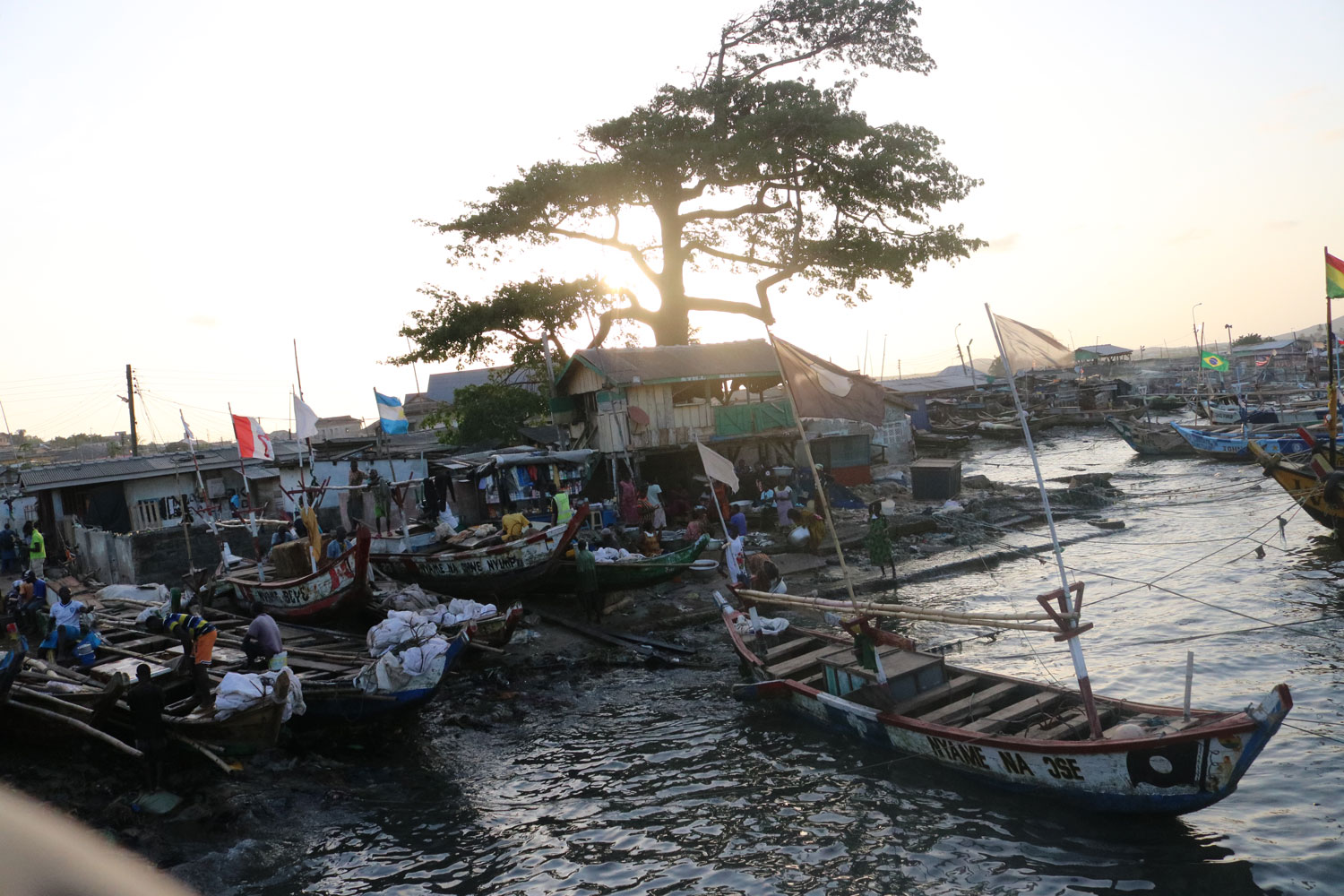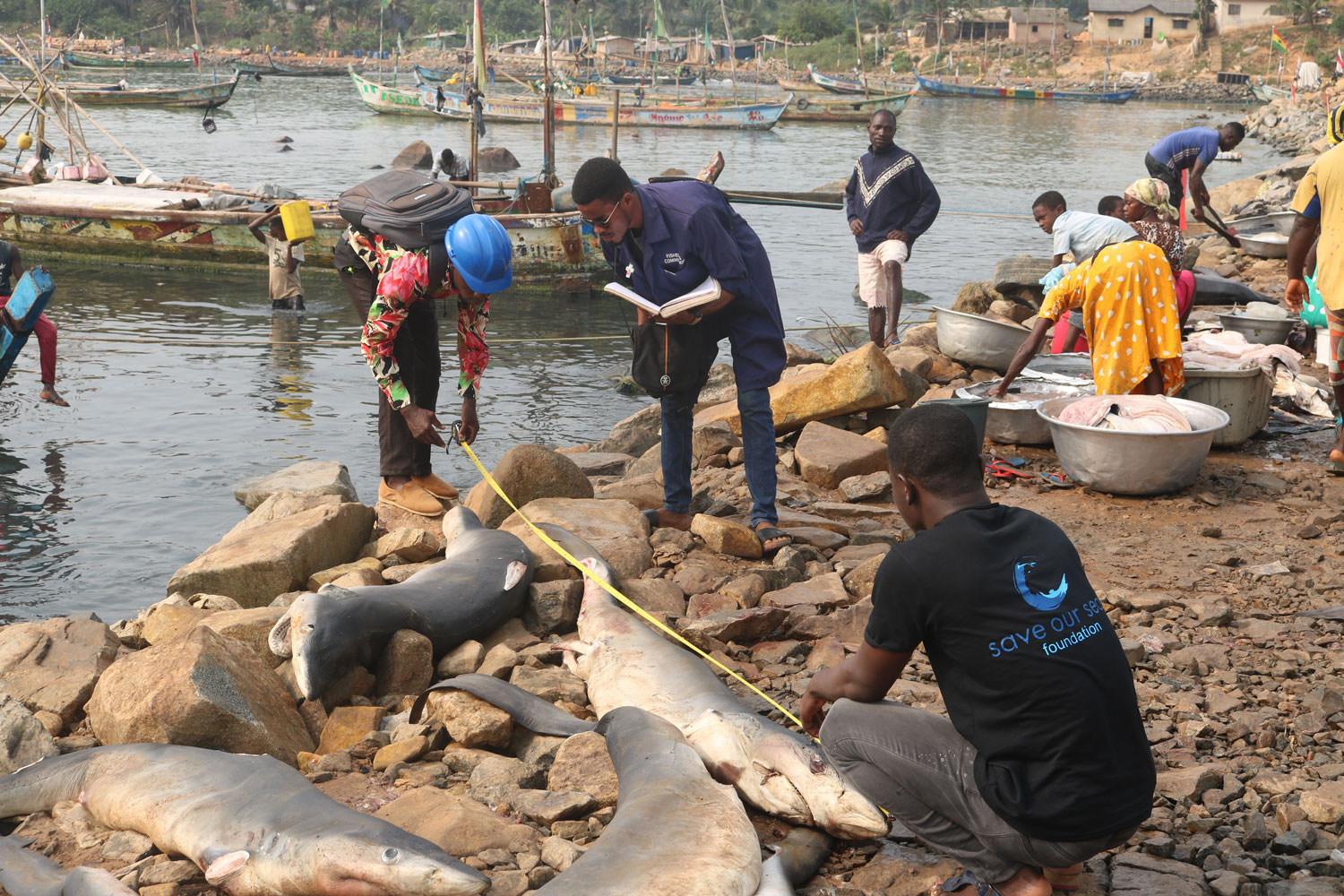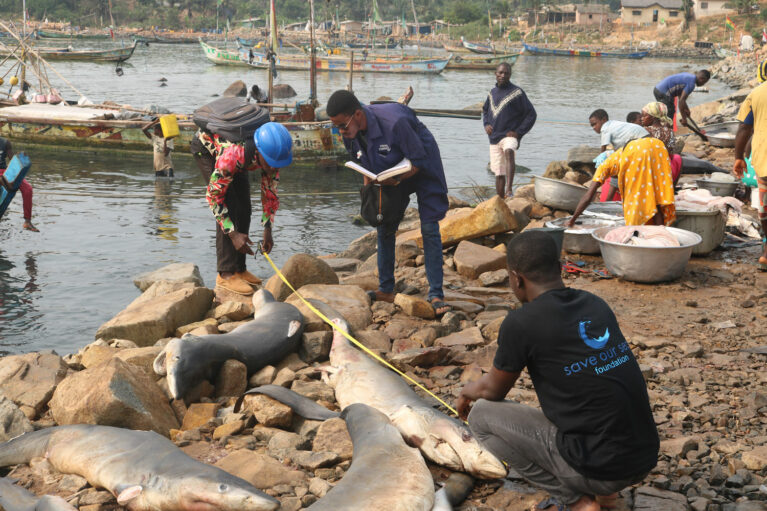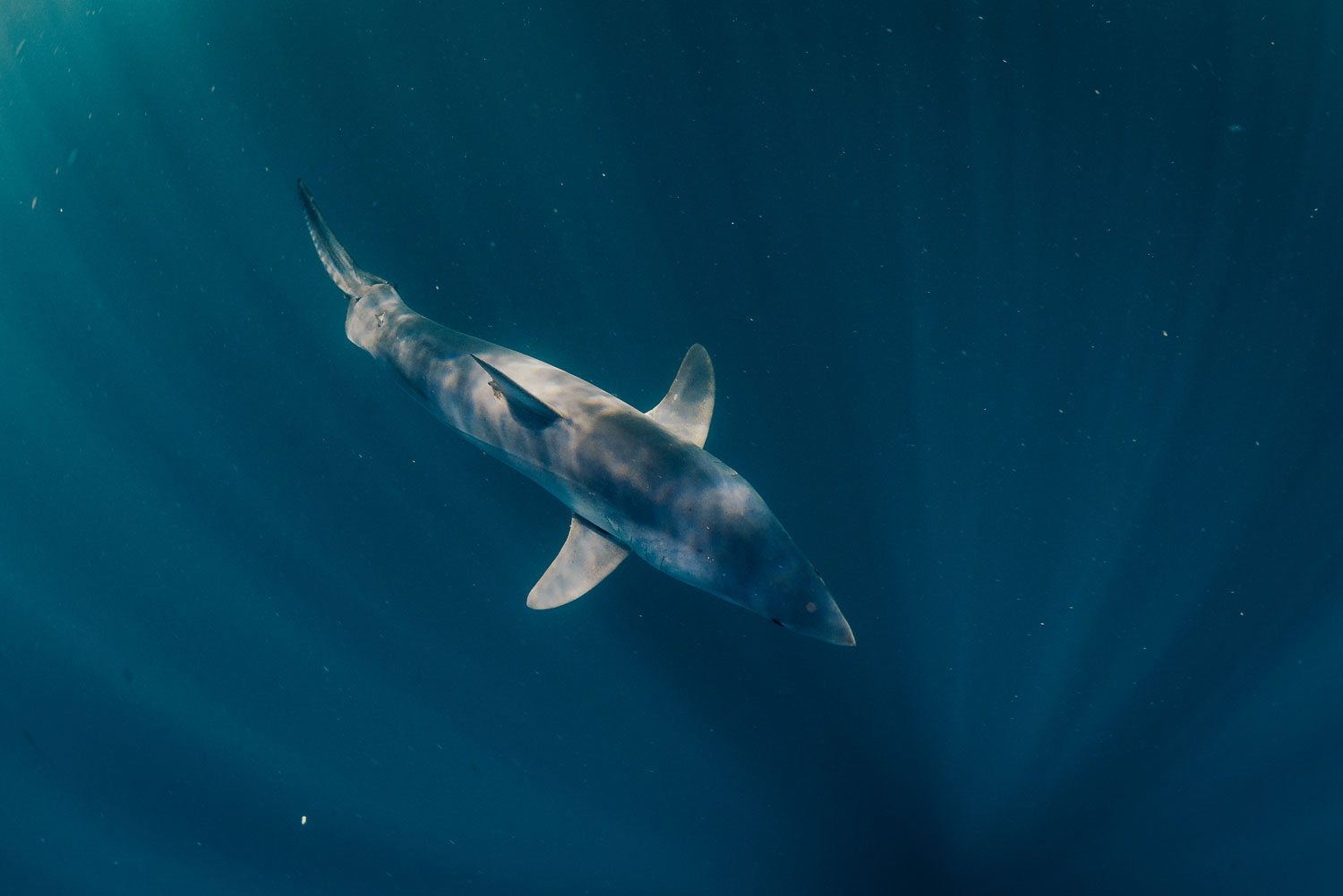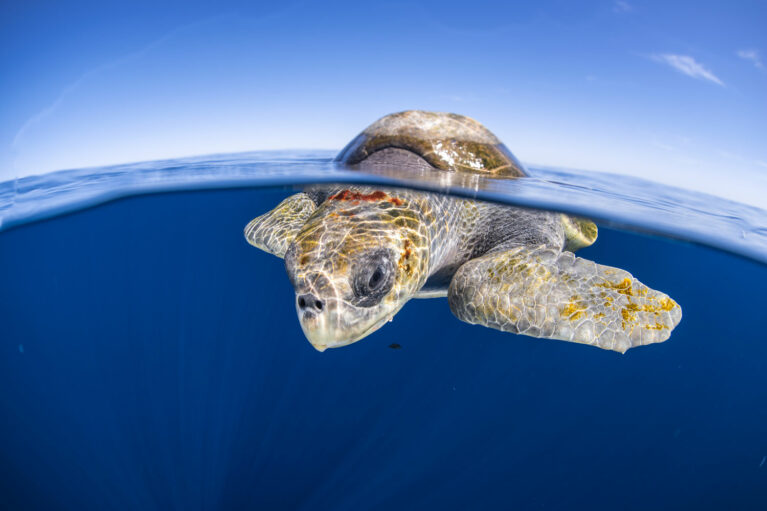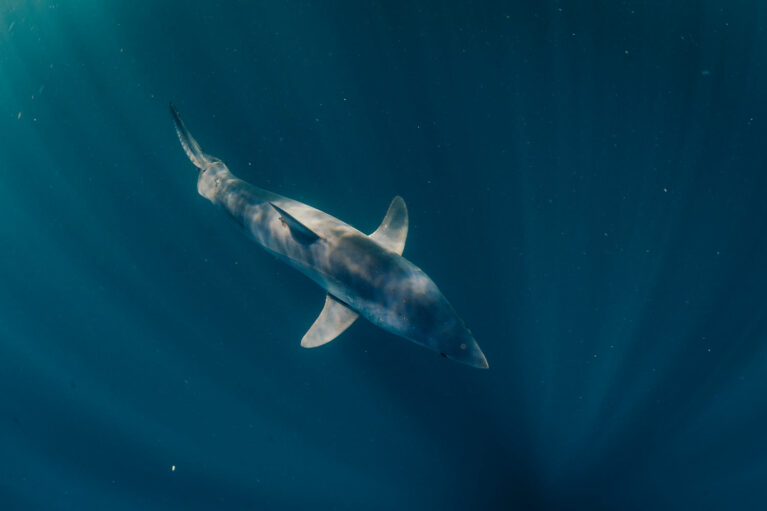The waning power of taboo
My father, who taught me to fish, was a traditionalist and believed strongly that sea gods and children of sea gods are only kind when you obey their instructions. We were not desperate to go to sea for fishing in those days, compared to what is happening currently.
So says a retired fisher from Axim, a small village in western Ghana where the shoreline is terracotta orange and dotted with motorised canoes. He is speaking to Issah Seidu, an SOSF Project Leader and the lead author of a paper recently published in Maritime Studies. Over a period of 18 months, Issah spoke to artisanal gillnet fishermen to learn more about their practices and the cultural norms and taboos that govern them. This journey took Issah and the research team to five villages in western Ghana, where they interviewed 33 fishers who caught primarily sharks and rays. What they discovered is both exciting and alarming. For instance, even though shark fisheries are not strictly regulated by Ghanaian law, traditional rules protect the endangered whale shark Rhincodon typus from being caught. However, these traditional rules and norms are rapidly fading away, and they need to be recognised and reinforced before they disappear entirely.
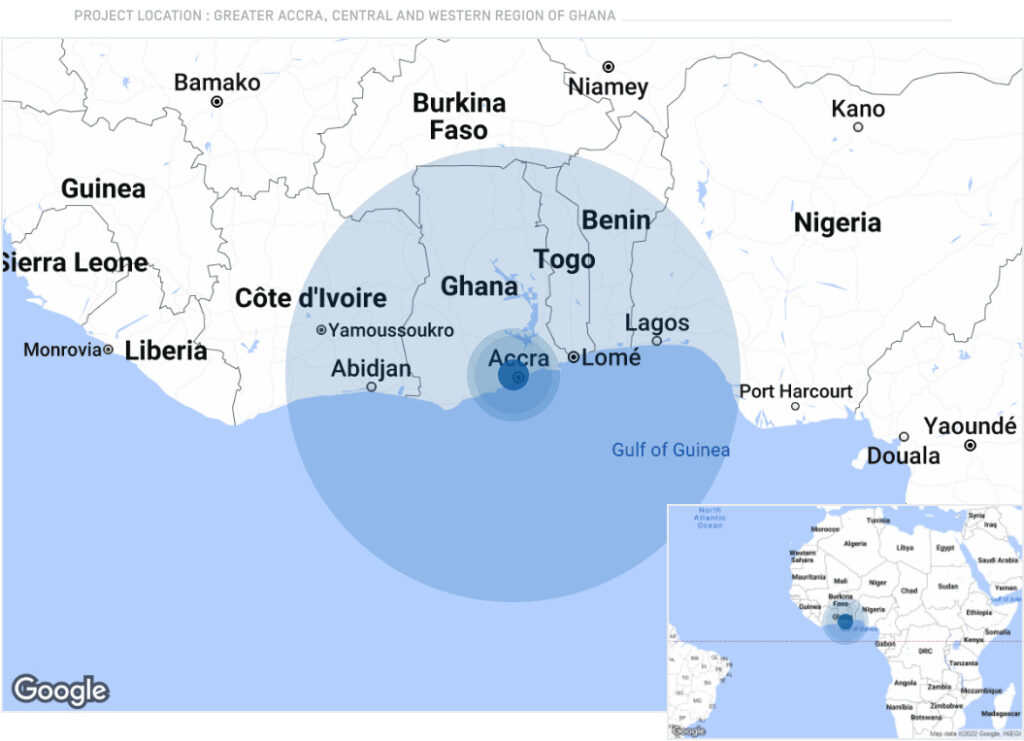
Since the 1980s, when neighbouring West African countries began trading in shark fins and amassing large profits, sharks have become a major target for the artisanal fishers of Ghana. Declines in populations of the teleost species they normally caught and the destruction of their fishing gear by sharks and other large fish also motivated the fishers. The result is that Ghana’s understudied artisanal fisheries now pose a significant threat to sharks and rays, which they catch in great numbers using drift and bottom-set gillnets.
But it wasn’t always this way. The Ghanaian coast has a rich cultural heritage, including beliefs and taboos that once prohibited the unsustainable use of marine resources. The paper’s authors refer to these cultural beliefs and taboos as informal institutions, in that they are based on cultural norms and self-imposed codes of conduct. For instance, in a part of the country inhabited by the Dangme people, fishers do not hunt sea turtles because of a belief that sea turtles saved their ancestors during a war with the Ashanti tribe several centuries ago.
Similarly, in the five coastal communities where Issah conducted interviews with the help of local volunteers, he learned of taboos that protect marine life, including elasmobranchs (sharks and rays). Sundays and Tuesdays are considered days sacred to the sea god, who performs spiritual cleansing of the sea. Therefore, fishing on these days is traditionally banned. Species-specific taboos restrict fishers from catching whales and other large marine animals, which are believed to be sea gods, as well as their neonates – the children of sea gods. There are also taboos on catching mako sharks and whale sharks, as well as prohibitions on smoking, drinking alcohol and quarrelling while at sea. Passed down from generation to generation, these informal institutions are upheld by local authorities (chief fishers and community chiefs) who hold customary power in the community.
However, what Issah also learned from interviewing the fishers – roughly half of whom were retired and the rest were active – was that significantly fewer fishers are now complying with these informal institutions compared to before.
Some prohibitions, such as catching mako sharks and fishing on Sundays, have eroded entirely and are not being observed at all. Other practices that had been observed by the majority of retired fishers (76% did not fish on Tuesdays, for example) are no longer being observed by active fishers. Nevertheless, there remain several taboos that the majority of active fishers still adhere to. These include the ban on catching whales (63% compliance) and whale sharks (62% compliance).
The reasons why fishers choose to comply with taboos vary. The authors attribute compliance to instrumental motivation (the economic benefits outweigh the costs) and normative motivation (there is a sense of duty to fit in or to uphold the traditions of their forefathers, or a desire to avoid communal disapproval). Fishers who break these cultural taboos typically have to answer to the chief fisher of their community and may receive punishments that include fines and suspension from fishing for several days. At the same time, the fishers may want to avoid flouting the rules for fear of triggering a calamity or incurring bad luck.
When either of these two motivations weaken, compliance falls. For example: ‘A retired fisher reported that it was forbidden to catch or eat mako sharks. This taboo was strictly adhered to until 1985, when one man from the Greater Accra Region came to Shama and started catching and consuming the species. The people observed that no calamity befell him and many fishers became interested in catching and trading mako sharks as well.’
When such incidents occur, the normative motivations compelling fishers to comply with taboos weakens. In several other cases as well, these values are weakened when outsiders move into the community and bring new ways of doing things. According to the fishers, they have also been weakened by the proliferation of Christianity and Islam, the teachings of which may clash with their own inherited traditions, cultures and beliefs.
But the best explanation for the increasing non-compliance concerns instrumental, not normative, motivations. Some strongly held institutions only began to falter once the prescribed punishments lose their deterrence value. One interviewee reported to the authors that when fishers break the informal law and fish on Tuesdays, they are always prepared to face the penalty issued by the local fishing council – <i>if</i> they are caught. In the quest to get a better catch, many fishers are willing to pay the price of breaking the rules because they believe their catch will offset the incurred loss, or they might get away with it entirely.
The taboo and ban of catching whales in Ghana is still largely adhered to today. Photo © Christopher Vaughan-Jones
Critically, the authors locate this trend within a greater global context. Modernisation has meant that resource management taboos, which rely for compliance on notions such as supernatural punishment, are quickly eroding. At the same time, fishing communities are being drawn into networks of trade that span the globe, such as the shark-fin trade, with terrible ecological repercussions. As the impact of artisanal fisheries grows, the informal ways in which they regulate their resource use are being worn down, and formal regulations – the comparatively costly and cumbersome top-down government regulations – are often slow to materialise.
The authors therefore highlight the need to strengthen and recognise informal institutions that have a positive conservation effect. Officially recognising taboos and beliefs as legitimate institutions and integrating them into government laws and policies will help reinforce compliance. It would allow for better enforcement of existing taboos as well as stronger fines by the local authorities. This must be done in collaboration with the leaders of the communities, such as the chief fishers. If done in such a way, with the position of fishers clearly defined in policies that encourage the co-management of marine resources, it would also empower local fishing communities and help restore the inherited sense of duty that has conserved their coast for generations.
**Reference: Seidu, I., Brobbey, L.K., Paul, OT. et al. 2024. Practices and informal institutions governing artisanal gillnet fisheries in Western Ghana. Maritime Studies 23: 32 . https://doi.org/10.1007/s40152-024-00379-9


